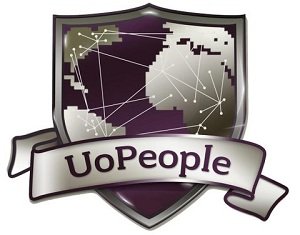 It wouldn’t be an exaggeration to say that we live at the turning point of human history. The last century saw more progress in technology and science than the previous thousand years, and the tempo of this development is only increasing. Yet in many other aspects – social, educational, psychological and some others – humankind changes much, much slower. And today what we have in terms of governments, institutions and arrangements of human existence is, mostly, woefully inadequate to the challenges of the new age and, even more disappointingly, lacking when compared to what they can already be, given the current level of technological advancement. And one of the areas that is most obviously inadequate is education.
It wouldn’t be an exaggeration to say that we live at the turning point of human history. The last century saw more progress in technology and science than the previous thousand years, and the tempo of this development is only increasing. Yet in many other aspects – social, educational, psychological and some others – humankind changes much, much slower. And today what we have in terms of governments, institutions and arrangements of human existence is, mostly, woefully inadequate to the challenges of the new age and, even more disappointingly, lacking when compared to what they can already be, given the current level of technological advancement. And one of the areas that is most obviously inadequate is education.
Modern higher education has been developed with the challenges of the industrial age in mind – and it meets them perfectly well, preparing millions of students every year for the life in industrial society. The problem is, this society is no more – today we live in the information age, which sets before us completely different tasks and has completely different requirements for success. To crown it all, the Earth’s population is growing too fast for the conventional higher education institutions to accommodate for it. If everything goes the same way it goes now, in a couple of decades (if not sooner) we are going to see millions upon millions of young people fully meeting even the strictest criteria of the most prestigious universities who will not be able to receive higher education simply because there will physically be no places for them.
That is why something needs to be changed, and quickly. One of the forerunners of this change is the so-called University of the People (UoPeople). It is a non-profit organization that does its best to use the possibilities of the Internet to the fullest in order to change the prevalent educational paradigm. And its creators believe that while today it is an exception, an interesting experiment, in a very foreseeable future the model according to which it works can become a norm – and, probably, we have no other choice but to move in this direction.
The first advantage of the University of the People is that it is exists in the Internet and thus, theoretically, can accommodate for an unlimited number of students without being restricted by state borders, nations, geographical locations and suchlike. It doesn’t have to own physical buildings and grounds. Currently the educational materials and the assistance of professors it uses – commonly one of the heftiest expense lines of any university – are also provided for free by said professors.
As a result, it can offer a flexible, helpful curriculum for any students from any country who are passionate about getting education but cannot follow their dreams due to financial, cultural or some other reasons. It gives a chance for better lives to those who have nobody and nowhere else to turn to.
Currently the number of students at the University of the People is rather limited, as well as the number of courses. But what it has works perfectly – and we are likely to see more institutions of the same kind in future.